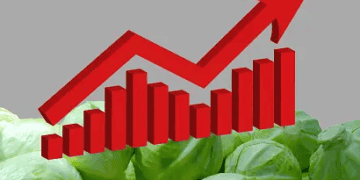The journey of our food, from farms to tables, involves a complex global supply chain. A critical aspect often overlooked by consumers is the intricate logistics behind food transportation and its impact on prices. Morten Johansen, Chief Operating Officer for DP World Americas, sheds light on this issue in his Forbes article, emphasizing the role of supply chains in the rising costs of food products.
Rising Costs and the Global Supply Chain
The global food supply chain faces challenges such as increasing costs, logistical hurdles, and environmental concerns. For instance, the price of imported fruits has seen significant rises. Between 2021 and 2022, even as the volume of fresh and frozen fruit imports grew modestly by 3%, their value surged by 10%. Transportation costs, constituting a substantial portion of perishables’ final cost, are closely linked to fluctuating fuel and electricity prices.
Cold Chain Logistics as a Solution
Johansen proposes enhancing cold chain logistics to combat food inflation. Improving these logistics can lead to more stable prices, reduced risks, and a more environmentally sustainable global supply chain.
Supply Chain Challenges in the U.S. and Latin America
The U.S., being the world’s leading fruit importer, predominantly sources from Latin American countries. Fluctuating oil prices directly impact consumer prices due to the high transportation costs. Innovative and adaptive solutions, like integrating alternative energy sources and updating older equipment, are key to making the fruit supply chain more efficient and sustainable. Solar-paneled warehousing in the Dominican Republic exemplifies this shift towards renewable energy.
Infrastructure and Climate Change Challenges
Upgrading infrastructure in Latin American countries is crucial to support increasing exports. However, these upgrades face challenges like high costs and time constraints. Alternative solutions, such as revamping existing structures and exploring new shipping routes, are becoming popular. For instance, the development of a dedicated air cargo hub in the Dominican Republic aims to streamline perishable shipments.
Building a Resilient and Sustainable Future
Advancements in cold chain logistics offer opportunities to turn these challenges into positive change. By enhancing infrastructure, creating resilient operations, and exploring alternative shipping methods, the goal is not just to ensure the year-round availability of fruits but to forge a sustainable and efficient future for the global food supply chain.
About DP World
DP World plays a pivotal role in global trade, enhancing the flow and creating opportunities worldwide. With a team of over 103,000 employees across 75 countries, DP World is a major player in transforming and integrating various facets of the trade, from ports and terminals to logistics and technology. The company is dedicated to pushing trade further, aiming for a seamless supply chain suited for future demands.
DP World also focuses on innovation, investing in technologies such as intelligent delivery systems and automated warehouse stacking. These innovations are not just reshaping the sector; they are creating more effective and disruption-resistant trade pathways from production to consumption.
Stay on top of supply chain logistics news updates at The Supply Chain Report. Visit ADAMftd.com for free international trade tools.
#FoodSupplyChain #GlobalLogistics #ColdChainLogistics #DPWorld #SupplyChainChallenges #FoodInflation #SustainableLogistics #SupplyChainInnovation #ColdChainSolutions #LogisticsEfficiency #SupplyChainSustainability #LatinAmericaSupplyChain #RenewableEnergyInLogistics #GlobalTrade #SupplyChainResilience #TransportationCosts #FoodPrices #SustainableFuture #AlternativeEnergyLogistics















